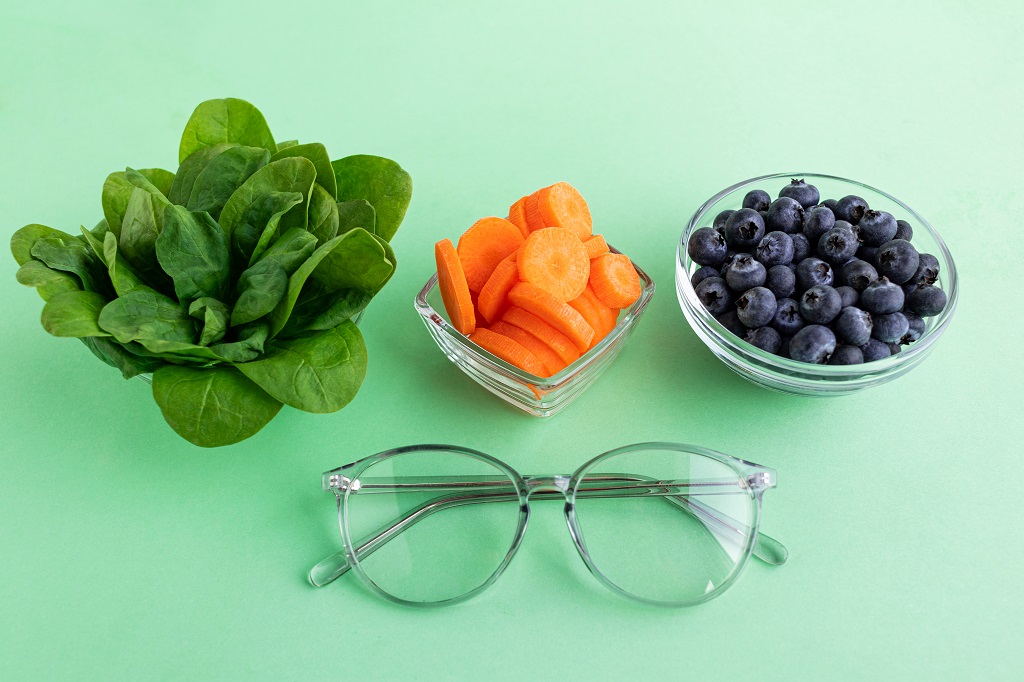Vision impairment and ocular health are pressing concerns in contemporary society. As the prevalence of ocular ailments continues to rise, particularly among aging populations and those engaged in prolonged screen time, a focus on dietary interventions can play a pivotal role in promoting optimal eye health. Numerous studies indicate that certain foods contain essential nutrients that may contribute to improved vision and the prevention of eye-related disorders. This article delves into the multifaceted relationship between nutrition and vision, exploring how specific foods can naturally enhance eyesight.
Understanding the Nutritional Foundations of Eye Health
The human eye is an intricate organ requiring a variety of nutrients to function effectively. Vitamins, minerals, antioxidants, and fatty acids are integral components in maintaining ocular health. Certain nutrients, particularly those found in fruits and vegetables, are pivotal in combating oxidative stress, a contributor to conditions such as cataracts and age-related macular degeneration (AMD).
Antioxidants, such as vitamins C and E, play a crucial role in neutralizing free radicals that can damage retinal cells. Additionally, essential fatty acids, including omega-3, contribute significantly to retinal health by safeguarding the physical structure of photoreceptors. The incorporation of these nutritional elements into the diet can substantially bolster eye defenses against degenerative diseases.
The Role of Carotenoids in Vision Enhancement
Carotenoids, a class of pigments abundant in colorful fruits and vegetables, are particularly noteworthy for their ocular benefits. Key carotenoids include lutein and zeaxanthin, primarily found in dark leafy greens and other vibrant produce. These compounds are deposited in the macula, the region of the retina responsible for central vision, safeguarding it from harmful blue light exposure.
Dark leafy greens such as kale, spinach, and collard greens stand out for their high lutein and zeaxanthin levels. Ingesting these foods may decrease the risk of AMD and cataracts, conditions that can irreversibly impair vision. The synergistic effects of combining a variety of these foods harness the full spectrum of their protective properties, underscoring the importance of a diverse diet.
Citrus Fruits and Their Multifaceted Benefits
Citrus fruits—such as oranges, grapefruits, and lemons—are not only renowned for their refreshing flavor but also for their impressive vitamin C content. Vitamin C is essential for synthesizing collagen, an integral part of the eye’s structure, especially in the cornea. Moreover, this powerful antioxidant aids in the prevention of cataracts by mitigating oxidative damage.
The health benefits of citrus fruits extend beyond vitamin C. They also contain flavonoids, further enhancing their antioxidant capabilities. The consumption of citrus fruits regularly may contribute to ocular health by reducing inflammation and promoting the overall wellness of the eye tissues.
Colorful Berries: Small Fruits with a Big Impact
Berries, including blueberries, strawberries, and blackberries, are intricate reservoirs of antioxidants and vitamins. They provide a rich source of anthocyanins, compounds responsible for the vibrant colors of these fruits. These antioxidants have been linked to improved vascular health, enhancing blood flow to the optic nerve and retina, which is vital for maintaining optimal vision.
Research indicates that regular consumption of berries is associated with a reduced risk of conditions such as AMD and diabetic retinopathy. Their innate properties not only bolster eye health but also fortify overall well-being, making them an excellent addition to any diet aimed at improving vision.
Incorporating Omega-3 Fatty Acids for Optimal Retinal Function
In the quest for better vision, the significance of omega-3 fatty acids cannot be overstated. Found abundantly in fatty fish such as salmon, mackerel, and sardines, omega-3s play an instrumental role in maintaining the structural integrity of the retina. They are crucial for the production of photoreceptor cells, the cells responsible for converting light into neural signals.
Numerous epidemiological studies underline the association between higher omega-3 intake and decreased risk of AMD. The anti-inflammatory properties of omega-3 fatty acids are also beneficial, contributing to the overall health of ocular tissues. For individuals seeking to enhance their vision naturally, integrating omega-3-rich foods into their diet should be a priority.
The Influence of Nuts and Seeds on Eye Health
The role of nuts and seeds, particularly those rich in vitamin E, is often overlooked in discussions regarding ocular health. Nuts such as almonds, hazelnuts, and walnuts, along with seeds like sunflower and flaxseed, are high in vitamin E and healthy fats. These nutrients are essential for protecting eye cells from oxidative stress.
Vitamin E, in particular, has been shown to reduce the risk of cataracts and age-related macular degeneration. By incorporating a variety of nuts and seeds into daily meals, individuals not only benefit from enhanced vision but also from improved cardiovascular health, creating a holistic approach to well-being.
The Importance of Hydration in Vision Enhancement
While specific foods are pivotal in promoting eye health, the role of proper hydration should not be underestimated. Dehydration can lead to dry eyes and overall discomfort. Water-rich foods such as cucumbers, celery, and watermelon contribute to maintaining optimal hydration levels, ensuring that the eyes are adequately lubricated.
In addition to plain water, herbal teas and broths can provide valuable hydration while delivering nutrients beneficial to eye health. Maintaining adequate hydration is vital for maximizing the benefits of dietary choices and preserving the health of ocular tissues.
Conclusion: A Comprehensive Approach to Vision Health
Enhancing vision naturally requires a multifaceted approach that encompasses a well-rounded diet rich in specific nutrients known to support eye health. Emphasizing the consumption of vibrant fruits, dark leafy greens, nuts, and fatty fish can fortify the body’s defenses against eye-related diseases. Ensuring adequate hydration and fostering overall wellness through comprehensive dietary choices are equally vital.
As ocular health continues to gain prominence in health discussions, integrating these dietary strategies becomes increasingly essential for individuals of all ages. The cumulative impact of these beneficial foods, when consumed regularly, offers a promising avenue for maintaining and improving vision naturally. By adopting an informed dietary approach, individuals can potentially safeguard their eye health and promote longevity in visual function.
